



|
1217
1220 |
The Fifth
Crusade is launched, led by Andrew II, King of Hungary.
Directed against Egypt, it fails to capture Cairo and, lacking
necessary reinforcements, ends in failure.
Work is begun on the building of Salisbury Cathedral in southern England. When completed in 1266, its decorated spire (404ft) is the highest in England. |
|
1225 |
The French poet Guillaume de Lorris writes the first section of The Romance of the Rose, one of the most famous of the allegorical poems in medieval literature.
|
|
1227 |
Following the death of Genghis Khan, his Mongol empire is divided into four Khanates, which stretch from the Black Sea to the shores of the Pacific. Its army numbers some 129,000.
|
|
1228 |
The Sixth
Crusade, led by Emperor Frederick II, re- treaty with the Sultan of Egypt. The city remains in Christian hands until 1244.
|
|
1231 |
The Inquisition is established by Pope Gregory IX to combat heresy in northern Europe. Later, its scope is widened, and torture is authorised in 1252 to extract confessions.
|
|
1235 |
The Empire of Mali is created in West Africa following the victory of the Malinke leader Sundiata over King Sumanguru of the Susu, conqueror of the ancient Ghana Empire.
|
|
1236
1241 |
The Mongols, having advanced into Hungary, Poland and the Danube Valley, are poised to invade Western Europe, but Batu, their leader, withdraws his armies to southern Russia following the death of the Emperor.
|
|
1242 |
Henry III takes a large force to France to
re- |
|
1244 |
Jerusalem, in Christian hands since an agreement reached between Frederick II and the Sultan of Egypt in 1228, is recaptured and sacked by a large Egyptian force.
|
|
1247 |
The Italian Franciscan monk Carpini returns from a fact- |
|
1248 |
The Seventh Crusade is launched following the Egyptian seizure of Jerusalem in 1244. Directed against Egypt, it fails to take Cairo, and Louis IX of France is taken prisoner. |
|
1250 |
The Mamluks, a new dynasty, comes to power in Egypt and Syria. Originally slaves serving in the Sultan's army, they seize the throne and remain in control for over 250 years. |
|
1258 |
The Mongols, led by Hulagu, capture the city of Baghdad and massacre the inhabitants over a period of seventeen days. They then go on to conquer Syria.
Under pressure from his barons, the King is obliged to issue the Provisions of Oxford These provide for the setting up of a Baronial Council to keep a check on royal power.
|
|
1259 |
By the Treaty of Paris between England and France, Henry, having failed to regain any of his lost lands in France, renounces all claims to French territory except that of Guyenne. |
|
1260
1261 |
Michael
VIII, Greek emperor of Nicaea,
recaptures Constantinople and re-
|
|
1264 |
In England, the Barons' War breaks out against the king. The barons, led by Simon de Montfort, defeat and capture the king and his son Edward at the Battle of Lewes.
The Italian philosopher and theologian, Thomas Aquinas, a stout defender of the Roman Catholic Church, begins to write his major work, the Summa Theologica.
|
|
1265 |
Simon de Montfort summons the first parliament but is later killed by the king's forces at the Battle of Evesham. Henry regains his throne, but his son Edward takes over the reins.
|
|
1268 |
The English philosopher and scientist Roger Bacon completes his Opus Majus, an encyclopedia emphasising the sciences and the importance of experimental research.
|
|
1270
1271 |
Marco Polo, aged 17, the member of a noble Venetian family, sets out on his historic journey to Peking and the court of Kublai Khan. |
|
1272 |
Death of Henry III. He is succeeded by his son, Edward I, who, in fact, had been in charge of state affairs since 1265 because of
his father's ill-
|
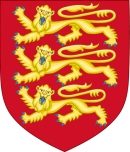





 xxxxx
xxxxx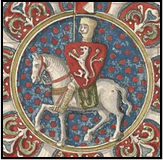 xxxxx
xxxxx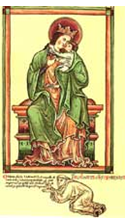
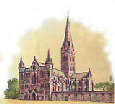
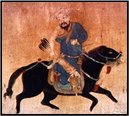 Henry
III comes of age and takes over the government of the country.
Henry
III comes of age and takes over the government of the country.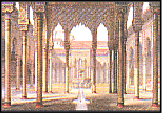
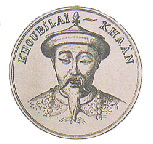 The
grandson of Genghis Khan,
The
grandson of Genghis Khan,  In
the
In
the 